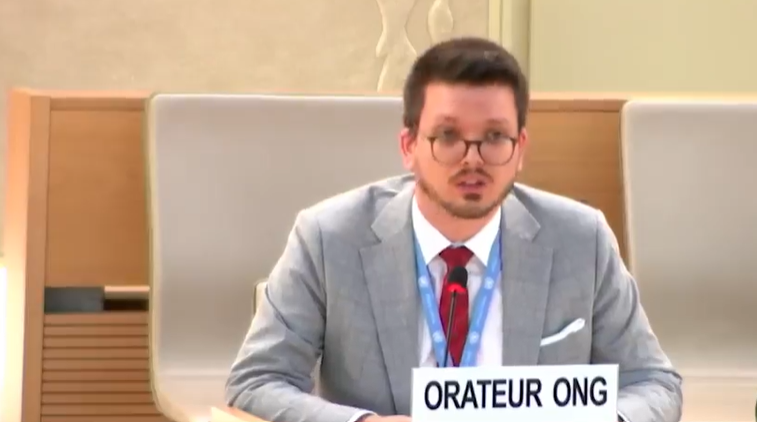The World Evangelical Alliance (WEA) together with its national member, Portuguese Evangelical Alliance (Arianza Evangelica Portugalsa, or AEP), has expressed concern over political instability, racism, racism, xenophobia, and restraints of religious freedom in the 58th religion, representing 355 local churches.
The meetings from February 24th to April 4th review the human rights records of several member countries through a universal regular review (UPR) process that occurs every four and a half years. On March 24th, Markus Stefan Hofer, WEA’s UN Communications and Advocacy Director, issued an oral statement regarding Portugal’s UPR results.
Hofer praised the Portuguese government’s efforts to tackle discrimination, Islamophobia, hate speech and other related intolerance towards ethnic and religious minorities, and welcomed its recognition of the need to protect the rights of medical professionals and patients to religious freedom and conscience.
However, he was also wary of “continuous political instability within the country, increased sympathy for populist political groups, and the rise of xenophobia and racist extremism.”
The WEA and AEP have expressed special concern over Portugal’s refusal to accept the recommendation that laws criminalize so-called conversion therapy include protections regarding religious freedom and rights of conscience.
“While teaching a follower of religious views according to their theology should never be considered a crime, the way Portuguese law is expressed can trigger interpretations along these lines.
“We call on Portugal to consider all laws regarding gender self-determination, ensuring a recognition of a social and religious perspective that does not accept individual gender self-determination.”
The Evangelical Alliance also urged Portugal to promote more training within the government sector to help civil servants maintain religious freedom laws. Additionally, they sought new laws to allow evangelical theological schools and seminaries to be included in the country’s national education system.
In April 2024, the WEA, AEP and the European Evangelical Union jointly submitted stakeholder reports at the 47th UPR session, outlining the issues raised in the Council.
The report traced the development of Portugal religious freedom, following on April 25, 1974, and highlighted the passage of the Religious Freedom Act on June 22, 2001. The law stated that it “declared the rights and obligations of Portuguese religious groups with the privilege of Portuguese religious beings.”
They described Portuguese’s legal framework as “illustrative in a democratic space and one of the best in the world,” but cited “centuries of “religious illiteracy” of Roman Catholic influence, in which the attempts of secularists and lycist attempts were to push everything out of public space.
The report also pointed to restrictions on Christian moral freedom of expression in public environments, including schools, and said secular media often limits coverage of religious perspectives outside of designated religious spaces.
The Alliance reiterated concerns about Portugal’s political instability. The corruption scandal involving government officials led to the dissolution of Assemblia da Republica (Portuguese Parliament) and the resulting national elections.
Additional concerns include nationwide protests by experts such as teachers and police officers regarding working conditions and cost-effective housing. Some foreign workers are being forced to live in tents for affordable accommodation, the report said.
“Equal access to prisons, hospitals and military pastors is not guaranteed to religious communities,” the alliance added to the report. “Evangelicals still rely on the goodwill of the people who run the organization rather than the strict and necessary compliance with the law.”
The report also challenged the government’s stance on gender identity. Since 2017, Portugal has implemented laws that adopted “sociological perspectives that allow gender self-determination,” the alliance said.
They warned that this led to the criminalization of experts who opposed the view that gender was self-determined rather than obvious at birth.
“This severely limits the right to conscience, freedom of education for parents, religious education and freedom of expression,” the report states.
